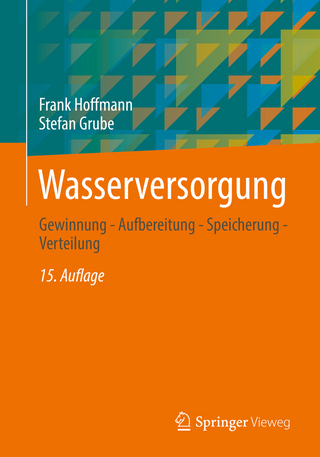
Climate Change and Resource Conflict
The Role of Scarcity
Seiten
2016
Routledge (Verlag)
978-1-138-18834-1 (ISBN)
Routledge (Verlag)
978-1-138-18834-1 (ISBN)
This book links climate change and resource scarcity to violent conflict.
This book examines the links between climate change and resource scarcity to violent conflict.
Does climate change cause conflicts? This book analyses the economic, political and social conditions under which countries with low levels of freshwater or arable land experience armed conflict. There are strong theoretic arguments linking climate change and scarcity of livelihood resources to conflict. However, empirical accounts are contradictory. Using qualitative comparative analysis (fsQCA), this book compares 22 political, economic and social conditions across 30 countries experiencing scarcity of available freshwater or arable land. The results show that there are three types of resource-scarce countries that experience conflicts: (neo)patrimonial states, oil-rich states that are poorly integrated into the global economy and least developed states. In addition, the results reveal that there are two types of resource scarce countries that remain peaceful: non-agrarian countries with either even development between groups or high integration into the global economy with high levels of adaptive capacities. This explains the contradictory results of previous empirical studies and suggests that resource scarcity might contribute to conflict in least developed countries.
This book will be of much interest to students of climate change, critical security, peace and conflict studies, and IR in general.
This book examines the links between climate change and resource scarcity to violent conflict.
Does climate change cause conflicts? This book analyses the economic, political and social conditions under which countries with low levels of freshwater or arable land experience armed conflict. There are strong theoretic arguments linking climate change and scarcity of livelihood resources to conflict. However, empirical accounts are contradictory. Using qualitative comparative analysis (fsQCA), this book compares 22 political, economic and social conditions across 30 countries experiencing scarcity of available freshwater or arable land. The results show that there are three types of resource-scarce countries that experience conflicts: (neo)patrimonial states, oil-rich states that are poorly integrated into the global economy and least developed states. In addition, the results reveal that there are two types of resource scarce countries that remain peaceful: non-agrarian countries with either even development between groups or high integration into the global economy with high levels of adaptive capacities. This explains the contradictory results of previous empirical studies and suggests that resource scarcity might contribute to conflict in least developed countries.
This book will be of much interest to students of climate change, critical security, peace and conflict studies, and IR in general.
Judith M. Bretthauer is a project manager at the Sanddorf Stiftung, Germany, and has a PhD in Political Science from the VU University, Netherlands.
1. Climate Change, Resource Scarcity and Armed Conflict
2. Economic Explanations: Development, Dependence and Diversification
3. Political Explanations: Dimensions of State Capacities
4. Social Explanations: Inequality and Adaptive Skills
5. Bringing Economic, Political and Social Explanations Together
6. Conclusion
| Erscheinungsdatum | 24.05.2016 |
|---|---|
| Reihe/Serie | Routledge Studies in Peace and Conflict Resolution |
| Zusatzinfo | 31 Tables, black and white; 13 Line drawings, black and white |
| Verlagsort | London |
| Sprache | englisch |
| Maße | 156 x 234 mm |
| Gewicht | 476 g |
| Themenwelt | Naturwissenschaften ► Biologie ► Ökologie / Naturschutz |
| Sozialwissenschaften ► Politik / Verwaltung ► Europäische / Internationale Politik | |
| Technik ► Umwelttechnik / Biotechnologie | |
| ISBN-10 | 1-138-18834-4 / 1138188344 |
| ISBN-13 | 978-1-138-18834-1 / 9781138188341 |
| Zustand | Neuware |
| Informationen gemäß Produktsicherheitsverordnung (GPSR) | |
| Haben Sie eine Frage zum Produkt? |
Mehr entdecken
aus dem Bereich
aus dem Bereich
Planung · Recht · Verfahren
Buch | Hardcover (2024)
Springer Vieweg (Verlag)
64,99 €
Gewinnung - Aufbereitung - Speicherung - Verteilung
Buch | Softcover (2022)
Springer Vieweg (Verlag)
39,99 €


